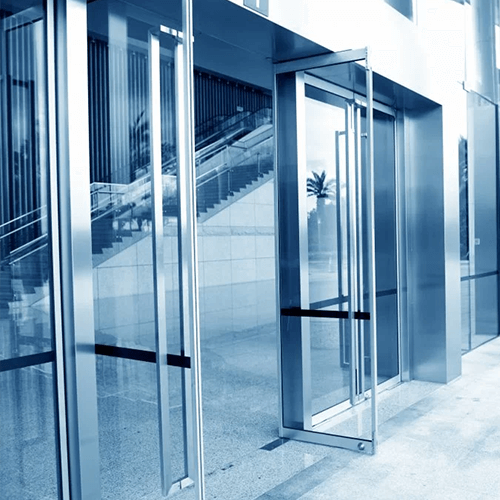Choosing the right door handing for your business may seem like a small detail, but it can have a significant impact on the functionality and accessibility of your space. Door handing refers to how a door swings open and is crucial when selecting doors for your business. In this post, we'll cover door handing basics and offer tips for choosing the right one for your business.
What is Door Handing?
Door handing refers to the direction that a door swings open when you push or pull it. There are two main types: left-handed and right-handed. A left-handed door swings open to the left, while a right-handed door swings open to the right. To determine the handing of a door, stand on the side of the door where it swings towards you. If the hinges are on your left, it is a left-handed door, and if the hinges are on your right, it is a right-handed door.
Why is Door Handing Important for Your Business?
Choosing the right door handing for your business is essential for several reasons:
- Accessibility: The direction that a door swings can impact accessibility, particularly for individuals with disabilities. The Americans with Disabilities Act (ADA) mandates that doors in public buildings should be designed to allow for easy access and egress. Choosing the right door handing can make it easier for individuals to enter and exit your building.
- Safety: The direction that a door swings can also impact safety. Doors that swing into a busy hallway or walkway can be hazardous and pose a risk to employees and customers. Choosing this can reduce the risk of accidents and injuries.
- Functionality: The direction that a door swings can impact the functionality of your space. For instance, in narrow hallways or tight spaces, incorrect door handing can cause congestion and difficulty maneuvering.
Tips for Choosing the Right Door Handing for Your Business
Here are some tips to help you choose the right door handing for your business:
- Consider the traffic flow: Take into consideration the traffic flow of your space when choosing door handing. If you have a busy hallway or walkway, consider doors that swing outward to reduce congestion.
- Check for obstructions: Make sure there are no obstructions, such as light fixtures or furniture, that could interfere with the door swing.
- Consider accessibility: If you have a high volume of foot traffic, consider doors with automatic openers to make it easier for individuals with disabilities to enter and exit your building.
- Consult with professionals: Consult with professionals, such as architects or installers, to ensure that you choose the right door handing for your space.
- Test the swing: Before finalizing your decision, test the door swing to ensure that it functions properly and does not interfere with the flow of your space.
Trust the Experts
Choosing the right door handing for your business is a small detail with a significant impact. Have questions? Contact CDF Distributors today!
